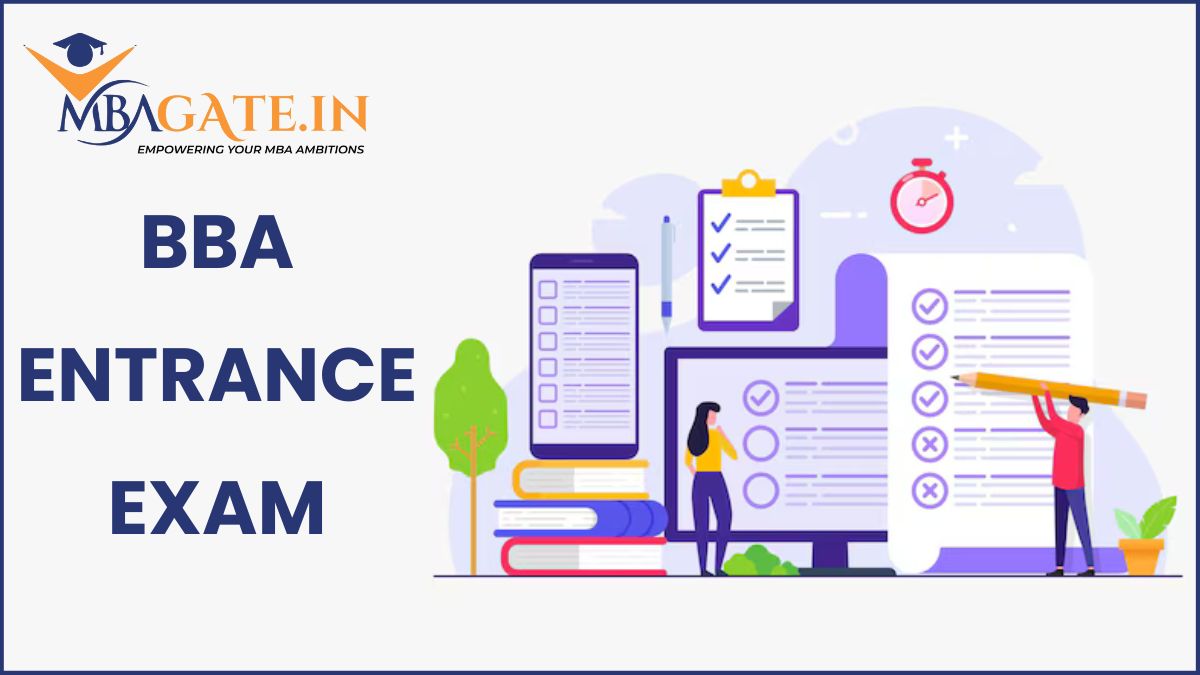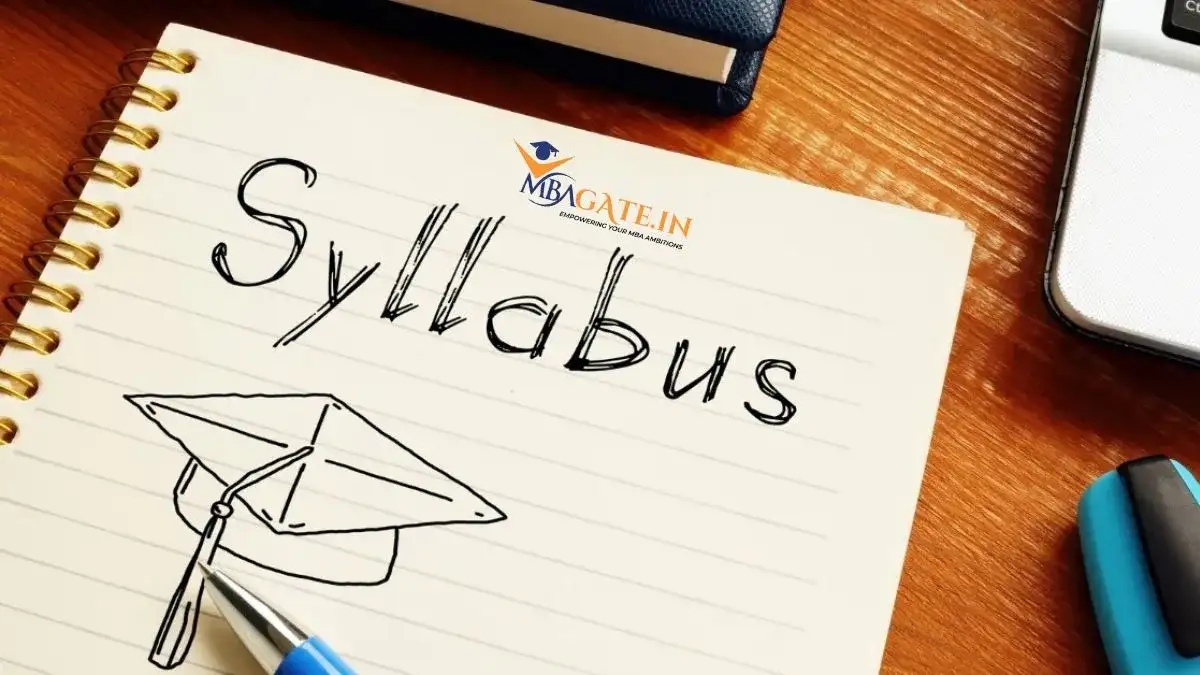Complete Guide to BBA Course: Eligibility, Exams, Colleges, Specialisations & Careers
Table of Content
-
- + more items Show less
Candidates must have completed class 12 with an aggregate of 50% or more for admission into BBA. In this program, candidates get admission through entrance exams and based on merit. BBA can be pursued by the candidates through full-time, part-time, online and distance/correspondence. CUET UG and IPU CET are a few national-level entrance exams that colleges accept for their BBA courses. Candidates can complete a BBA degree from one of the following best colleges: Symbiosis International University, Madras Christian College, Narsee Monjee Institute of Management Studies, Shaheed Sukhdev College of Business Studies,and Christ University, Bangalore. The average fee ranges from ₹540 and ₹11.52 lakh.
During the BBA degree, candidates will become well-equipped in the domains of marketing, finance, human resource management and entrepreneurship. Candidates may have the option to pursue specialisations, which include BBA Finance, BBA Entrepreneurship, BBA Aviation, etc.
After completing the course, candidates can get recruited for some of the top positions including finance executive, development analyst, and business consultant. The salaries range from ₹3 to ₹10 lakhs per annum. BBA's top recruiters Deloitte, KPMG, Goldman Sachs, EY and PWC.
What is BBA?
BBA (Bachelor of Business Administration) is a three-year undergraduate program. This program is designed to equip candidates with basic knowledge and skills that are necessary for management and leadership in various business environments. The BBA program included subjects such as marketing, finance, operation management and human resources. This program's motive is to develop various skills like critical thinking, communication skills and leadership skills that are necessary for candidates to advance their careers in the business sector.
Candidates need to pass class 12 from the recognised board and school with 50% marks to get admission to the BBA program. In the BBA program, candidates can get admission through an entrance exam or based on merit.
Types of BBA Programs in India
The BBA program is designed in a manner that any candidate can pursue it. There are six semesters in a three-year BBA program in which subjects related to business and management are taught. BBA can be done in various forms, like full-time, distance/correspondent, part-time, online and BBA MBA integrated. Here are various types of BBA courses explained in brief:
Full-time BBA Course: There are six semesters in a three-year BBA program. This course is very popular among BBA students. In this course, physical classrooms, internships, financial assessments and many other facilities are provided to the students.
Part-Time BBA Course: Part-time BBA is also a three-year regular course but classes are conducted in the evening and on the weekend. This course is best for students working with their studies. 30 colleges offer the part-time BBA program in India.
Distance/Correspondence BBA Course: This course is different from full-time and part-time BBA courses. This course does not have classes available for the students. In this course, classes run online. It is one of the best options for those who cannot pursue regular courses for any reason. Comparatively, the distance BBA course is flexible and cheaper as compared to a full-time and part-time BBA course. Currently, around 250 colleges are offering a distance BBA in India.
Online BBA Course: The online BBA course's main aim is to provide an opportunity to the students of the online education system. There are no physical classes available in this course. Lectures are held using video conferencing. Various study material related to the BBA course is provided through the Internet or any other means. Around 50 colleges are offering online BBA in India.
BBA MBA Integrated Course: The BBA-MBA course, is an integrated five-year management course. The course is offered by various colleges to students who want to study MBA after completing Class 12. The integrated MBA course is offered by top business schools such as IIM Rohtak, IIM Indore, IIM Ranchi, etc.
Reasons to Pursue A BBA Program
Pursuing a BBA program provides various benefits to improve a candidate's career prospects and personal development. Some of the key reasons to pursue a BBA program are given below:
Eligibility of a BBA Program
BBA is an undergraduate course, so the eligibility criteria for candidates to pass class 12 from the recognised schools and boards. In the BBA courses, aspirants are selected based on merit and entrance exams. Here are the key eligibility requirements for the BBA course:
BBA Entrance Exams
BBA entrance exams are the necessary exams for getting students enrolled into the Bachelor of Business Administration program. There are many top BBA programs all over India that students can enter through these entrance exams. The entrance exams that are conducted are CUET, SET and IPM Aptitude Test (IPMAT), among many others. Each of these entrance tests used key competencies like numeric aptitude, logical reasoning, fluency in English and general awareness to admit the students. The table represents the list of various entrance tests that need to be qualified for getting admitted into BBA courses.
BBA Admission Process
The BBA admission process involves various steps. The steps are as follows:
Eligibility Check: BBA admission eligibility includes a class 12 pass with a minimum of 50% marks.
Entrance Exams (if applicable): Register and appear for BBA entrance tests like CUET, AIMA UGAT and IPMAT or state-level and institute-level entrance exams.
Shortlisting: Colleges shortlist candidates based on entrance exam scores or merit basis.
Selection Rounds: After the entrance exam, the selected candidates are called for further rounds of the selection process. These are personal interviews (PI) and group discussions. Previous academic scores are given different degrees of weightage taken into account.
Final Admission: Colleges release merit lists based on candidate’s scores and performance in selection rounds. After the full payment and document verification, candidates are admitted to the BBA program.
The BBA admission criteria given above clearly ensure only the eligible and competent candidates get admission into the BBA program.
Top BBA Colleges In India In IIRF Ranking
The BBA is a three year undergraduate course. Various universities are offering the BBA course. CUET is the major accepting entrance exam in top BBA colleges in India. Some colleges give admissions based on merit, some based on the entrance exam scores of the candidate. Here are some government and private college’s names given according to the IIRF ranking: Delhi Technological University, University College Mangalore, Government College Autonomous Rajahmundry, etc are some of the best BBA colleges in India for BBA courses.
The BBA is a three year undergraduate course. Various universities are offering the BBA course. CUET is the major accepting entrance exam in top BBA colleges in India. Some colleges give admissions based on merit, some based on the entrance exam scores of the candidate. Here are some government and private college’s names given according to the IIRF ranking: Delhi Technological University, University College Mangalore, Government College Autonomous Rajahmundry, etc are some of the best BBA colleges in India for BBA courses.
BBA Syllabus
The BBA course is for students who have passed class 12. The course is known for its skill development and career advancement in the field of business and management. The course is 3 years for undergraduate level candidates. The BBA program provides theoretical, conceptual and practical knowledge about the business world. Business economics, accounting, corporate legislation and principles of management are the subjects in BBA The BBA subjects give students an idea about the business and management world. Here are some other highlights of the BBA syllabus:
BBA Popular Specialisation
Bachelor of Business Administration is a three year undergraduate course for candidates who have passed class 12 from the recognised board and school. There are many specialisations in BBA such as human resource management, finance, marketing, banking and sales & marketing. These specialisations give knowledge regarding the business and management fields.
Career Prospects And Salary After BBA
A BBA (Bachelor of Business Administration) degree opens up career opportunities in various sectors. BBA courses focus on business, management and research analysis, commodity trading, accounting and leadership skills. Here are some career prospects and job opportunities under the BBA program:
Higher Education Options After BBA
There are various specialisation courses available for students on completion of a BBA program for further study and career development. These courses further allow potential candidates to increase competencies in business management, finance, and commerce. Following is a brief description of popular courses that can be pursued after completing a BBA:
BBA vs. Other Business Degrees
BBA vs. BCom
There are differences between BBA and other degree courses. BCom provides intellectual and theoretical knowledge; it majorly emphasises building up a good foundation of financial concepts. Although there exist some approaches relating to the management field, they remain superficial as compared to those in a BBA degree. The following are some differences between BCom and BBA:
BBA vs. MBA
Most students entering a profession in business pursue a BBA or an MBA degree. The two have different purposes and structures regarding the objectives of students' careers. Here are the basic differences between the BBA and MBA programs:
FAQs
In India, various BBA courses are available. BBA courses have some of the most popular specialisations, which are marketing, sales, human resource management, digital marketing and tourism.
The cost will vary as per the college type and the location. Mostly, BBA fees range from₹ 50,000 to ₹10,00,000 to complete the full course, whereas government colleges usually charge less than private institutes. The total fees could be between ₹ 10,000 to 50,000 per annum in government institutes, but they may lie between INR 1,00,000 and INR 2,00,000 per annum for private ones.
BBA is a 3 year undergraduate course for candidates who want to make their career in the business world. Students have to pass class 12 with a minimum of 50% to get admission to the BBA program. After completing a BBA, students have various job opportunities. These are as follows: Business Analyst HR Manager Business Development Manager Financial adviser, etc.
Accreditation bodies differ from country to country. BBA is accredited by AICTE (All India Council of Technical Education) in India.









